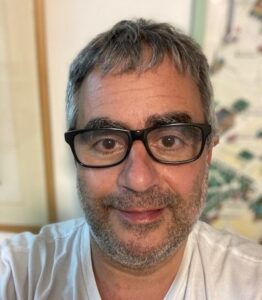In each of the last twenty centuries there is a date whose relevance is still felt by Jews today. This course will introduce us to these events but, more significantly, to the big themes of Jewish existence. The content of the course will encourage dialogue, discussion and interpretation. Questions we will grapple with include: Did the Jews have a Renaissance? Are Jews one? Why do people hate Jews and what did Jews do about that?
All the sessions of this course are designed with two very particular goals in mind: to expand knowledge of the events of European Jewish history; and to find personal points of connection and relevance through discussion and dialogue. In each session, there will be both a presentation of core material as well as time for debate and discussion. Every effort will be made to use a range of media (written texts, artistic, musical and film).
For those wishing to fill in gaps in their knowledge as well as for those who want to gain confidence talking about the Jewish past in today’s community context.
Session topics:
- ‘Time’: Dates, chronologies and why they matter
- Everyone loves / hates the Jews
- Borders and Boundaries: how Jews live and adapt to different societies
- Modern Jewish Politics and the battle for the Jewish future
Sessions will take place on Thursdays 21 & 28 October; and 11 & 18 November 2021, at 13.30-15.30 CET (12.30 – 14.30 UK time, 14.30-16.30 Bulgaria and Baltics).
- ‘Time’: Dates, Chronologies and Why They Matter.
Being honest, which is of these historic events is greater interest, the expulsion of the Jews from England or the flowering of Hebrew poetry in Spain? Different cultures, Jews included, relate to the past in weird and wonderful ways. Strangely, for a people of such antiquity, and with something of an obsession with remembering, the Jews do not necessarily pay that much attention to its exact details. In fact, Jewish history writing is a relatively new scholarly pursuit, and even today Jewish history must fight to find its place in the curricula of Jewish education. And so, in this first session we will attempt the impossible, to map out different timelines of Jewish history, and speculate on their significance.
- Everyone loves / hates the Jews
Every year on seder night, Jews call on God to ‘pour out anger on the nations’, officially as payback for rejecting their God, but we can confidently assume, for rejecting them too. It is challenging statement, to say the least, not least because it represents how a history of rejection, suffering and even trauma can impact on identity. In this session we trace the complex stories of acceptance and rejection of Jews, a confusing mixture high and lows in the last two thousand years. After all, European art and culture is overflowing with contrasting examples of how Jews have been regarded by their neighbours. Despite the mammoth dimensions of this topic, we will attempt to make sense of the contradictions, including why, with all that has happened in the last hundred years, we are still talking about this.
- Borders and Boundaries: how Jews live and adapt to different societies
Three moments to ponder: when the Catholic Church forced Jews into ghettoes in the mid-16th century, did they have any idea just what a remarkable (even positive?) impact that would have on Jewish identity? Did Ferdinand and Isabella have any idea what an extraordinary contribution they were making to Jewish civilisation and culture by expelling the Jews from Spain in 1492? And thirdly, following his being awarded the Nobel prize for literature, the great Hebrew S.Y Agnon commented that he had lived in five different countries without ever moving house. By going inwards (ghetto), outwards (expulsion), and sitting still in the same house as the borders moved around, all evidence points to the fact that borders define who we are.
In this session, we will trace the impact of Jewish migrations across the continent. But going further, we will also discuss the significance of crossing the nonphysical borders such as language, citizenship and culture, and ask whether it is possible to be on both sides of the border simultaneously?
- Modern Jewish Politics and the battle for the Jewish future
The premise of this session is that if we sat quietly, listening to the conversations taking place in a select number of European cafes one hundred and fifty years ago, we would understand everything about why Jewish history turned out the way it did. This final session focuses on the people of change, the utopians, and the pragmatists, who envisioned a different Jewish future and sought the means to ensure that future came about. With a bit of imagination mixed with good intention, we will actively go back in time and attempt to simulate the debates and argue with them about what was supposed to happen in the coming century. And given the chance, which utopia still has teeth today?
The course is valued at 500 Euros per person. Yesod Europe will cover the majority of this cost, but we believe that participants’ organisations should, wherever possible, demonstrate commitment to your development with some level of financial contribution. We are therefore asking for a contribution from your employer of 50 Euros towards the course.
While this is only 10% of the cost per person, given current Covid-related financial difficulties, we would not want this to be a barrier to you taking part. If this is not affordable for your employer, please do get in touch to discuss this with us.
Jeremy Leigh
 Jeremy Leigh was born in the UK and moved to Israel in 1992. Professionally, his work straddles the worlds of both formal and informal Jewish education: he is the Director of Israel Studies at the Hebrew Union College (Jerusalem); he also works intensively in the field of Jewish travel – training educators, writing materials and leading groups. He is also an academic advisor to the Association of European Jewish Heritage on the European Routes of Jewish Heritage project. Together with 728 other people, he is an owner of HaPoel Katamon Jerusalem.
Jeremy Leigh was born in the UK and moved to Israel in 1992. Professionally, his work straddles the worlds of both formal and informal Jewish education: he is the Director of Israel Studies at the Hebrew Union College (Jerusalem); he also works intensively in the field of Jewish travel – training educators, writing materials and leading groups. He is also an academic advisor to the Association of European Jewish Heritage on the European Routes of Jewish Heritage project. Together with 728 other people, he is an owner of HaPoel Katamon Jerusalem.
Spaces are limited and priority will be given to Jewish community professionals and educators living and working in Europe/UK.
To apply for the full course click here.
Closing date to apply is Monday 4 October.
We expect there to be more applications than places on the course, and we will aim to inform applications whether they have been accepted or not by 7 October 2021.
Please be in touch with us at info@yesodeurope.eu with any questions.



